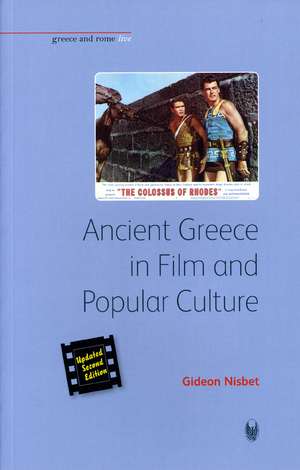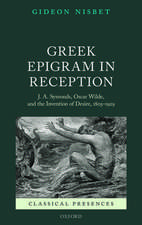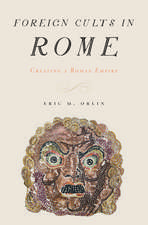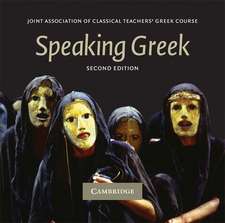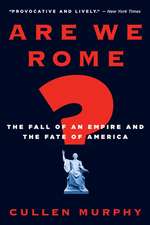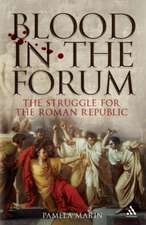Ancient Greece in Film and Popular Culture: Updated Second Edition: Greece and Rome Live
Autor Gideon Nisbeten Limba Engleză Paperback – 16 iul 2008
This revised second edition enabled the author to add a new chapter in response to the delayed release of the film 300.
The book responds to new developments in the reception of Greece in contemporary popular culture. Nisbet covers many older favourites such as Hercules Unchained, Clash of the Titans, and Cleopatra as well as more recent offerings such as Troyand Alexander.
Nisbet unpacks the ideas that continue to make Greece hot property – often too hot for Hollywood to handle. His lively explorations, which assume no prior expertise in classical or film studies, will appeal to all with an interest in ‘reception’: the present day’s re-use and re-invention of the past.
Preț: 385.65 lei
Nou
Puncte Express: 578
Preț estimativ în valută:
73.81€ • 76.77$ • 61.86£
73.81€ • 76.77$ • 61.86£
Carte tipărită la comandă
Livrare economică 13-27 martie
Preluare comenzi: 021 569.72.76
Specificații
ISBN-13: 9781904675785
ISBN-10: 1904675786
Pagini: 208
Ilustrații: 9 halftones
Dimensiuni: 140 x 216 x 18 mm
Greutate: 0.27 kg
Ediția:2 Rev ed.
Editura: Liverpool University Press
Colecția Liverpool University Press
Seria Greece and Rome Live
ISBN-10: 1904675786
Pagini: 208
Ilustrații: 9 halftones
Dimensiuni: 140 x 216 x 18 mm
Greutate: 0.27 kg
Ediția:2 Rev ed.
Editura: Liverpool University Press
Colecția Liverpool University Press
Seria Greece and Rome Live
Notă biografică
Gideon Nisbet is a Lecturer in Classics at the Institute of Archaeology and Antiquity, University of Birmingham. He is the author of Greek Epigram in the Roman Empire: Martial's Forgotten Rivals (Oxford, 2003). He is also an ardent film-goer and observer of the Hollywood scene.
Cuprins
List of Illustrations
Preface: The Dog in the Night-time
Acknowledgements
A Note on Terminology
1 Socrates' Excellent Adventure
2 Mythconceptions
3 Wars of the Successors
4 2007: It's Raining Men
Epilogue: Radio Gaga
Glossary
Suggestions for Further Reading (and Viewing)
Index
Recenzii
"[The book] is aimed at a popular audience, favors large ideas, and seeks to provoke questions rather than to settle them. . . . It is well suited to sparking discussion among undergraduates as well as introducing new perspectives to scholars. . . . It would be especially useful in combination with other recent studies as a stimulating introduction to the current scholarly conversation on Classics, media, and popular culture."
"A brief but punchy account of the topic, and will be of considerable value to a wide audience. . . . Nisbet convinces us that taste and value judgments are of limited importance here when compared to the bigger questions of how receptions of Greece, and the classical past more generally, play out in the modern world, and the examples he uses to address this question turn out to be entirely apt.
